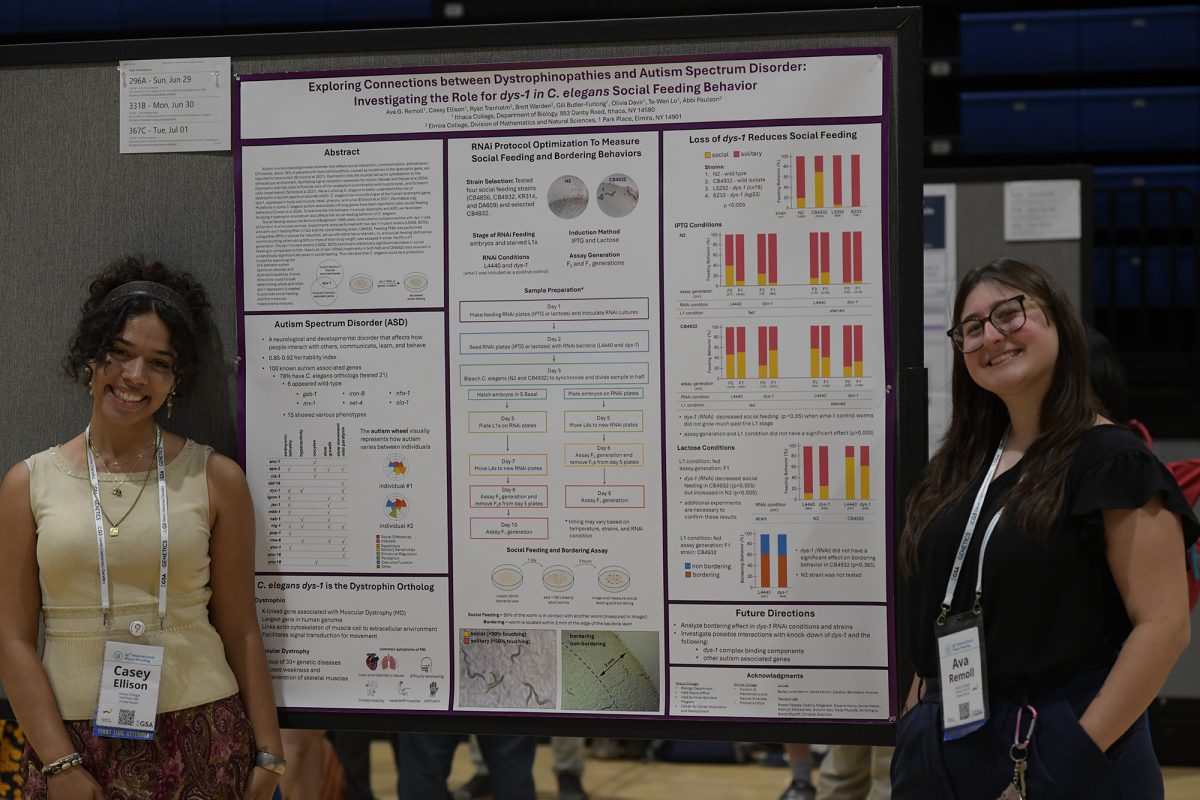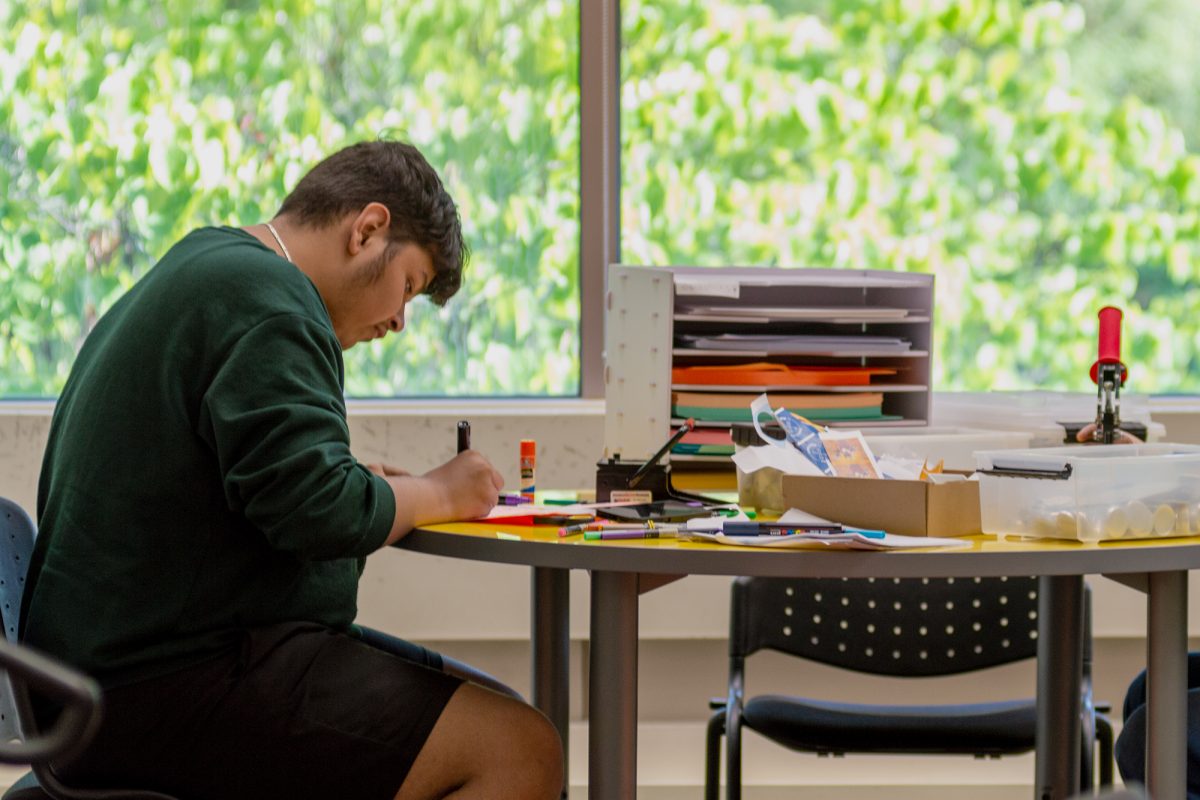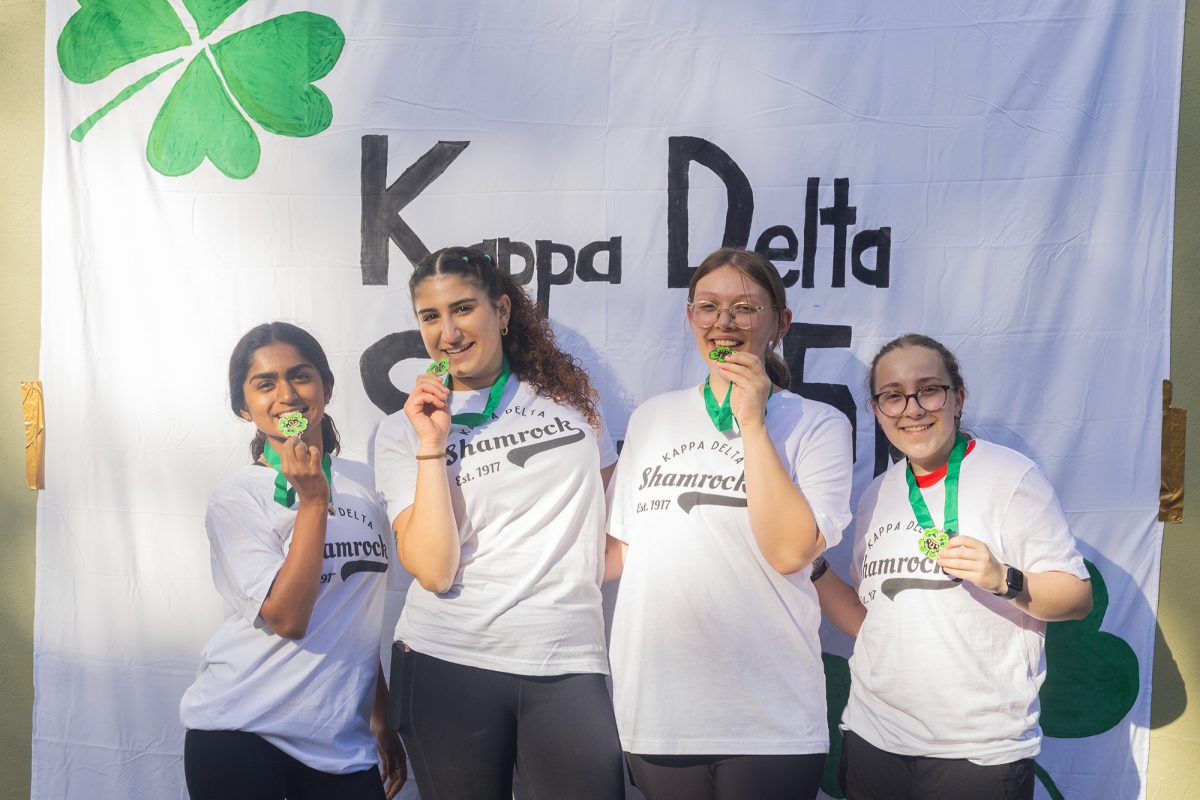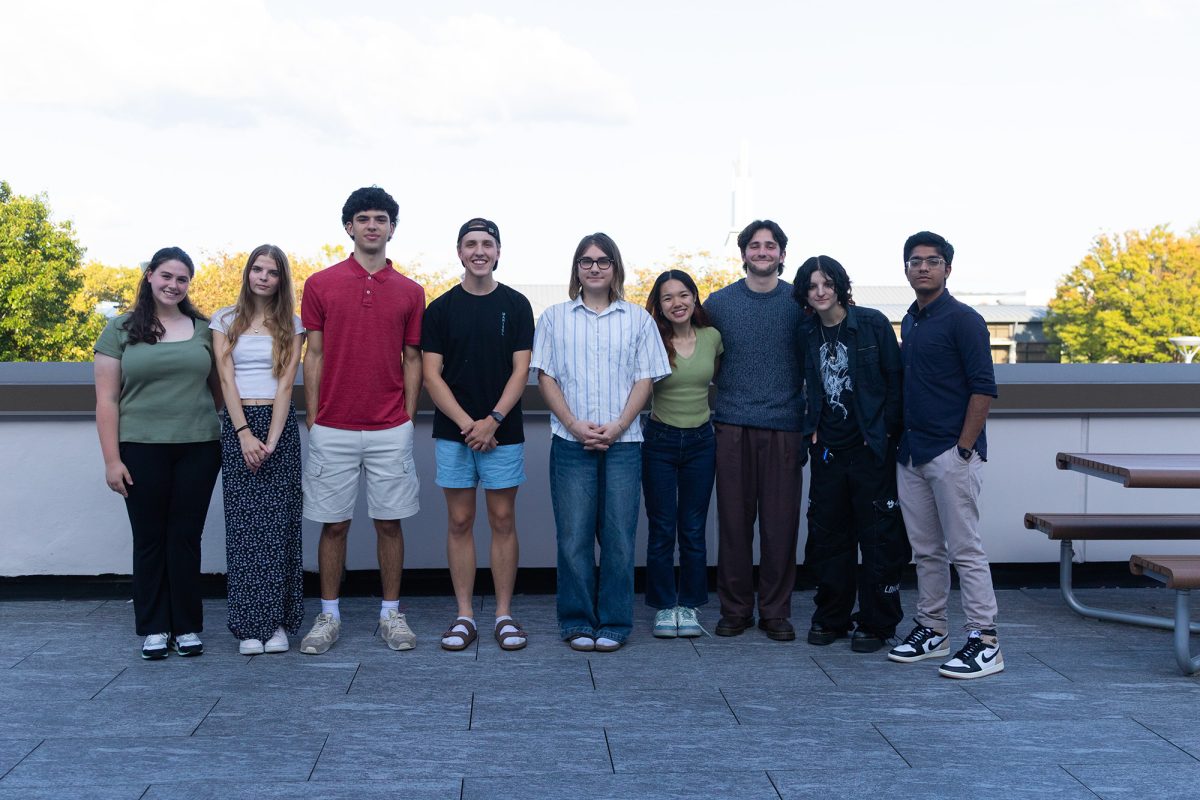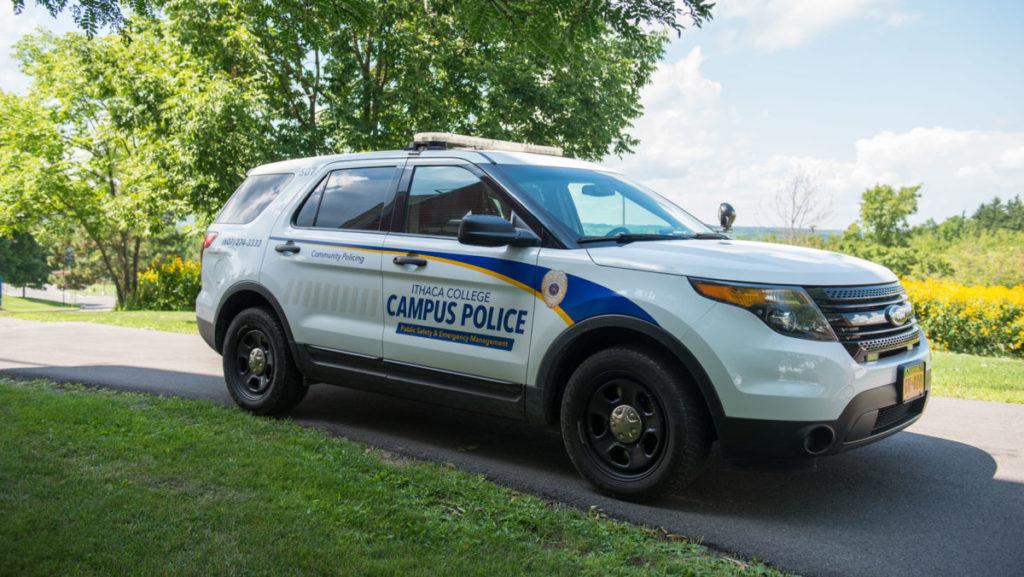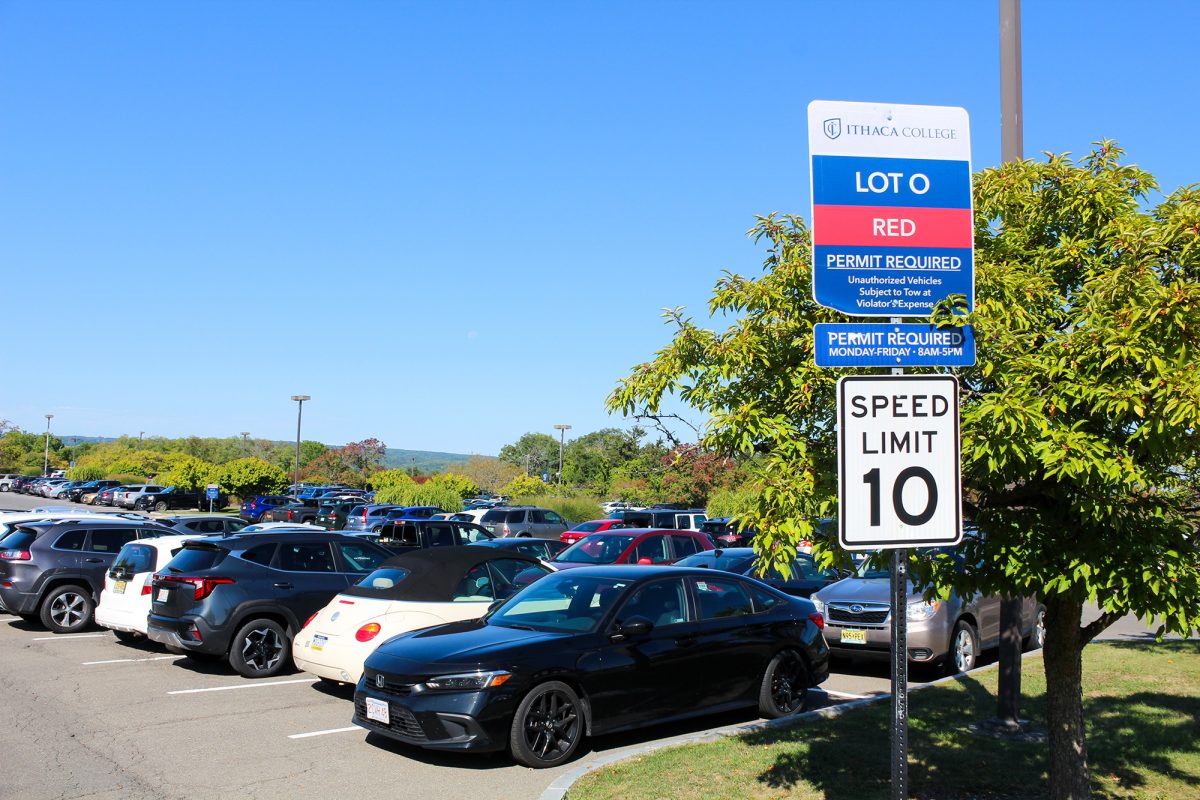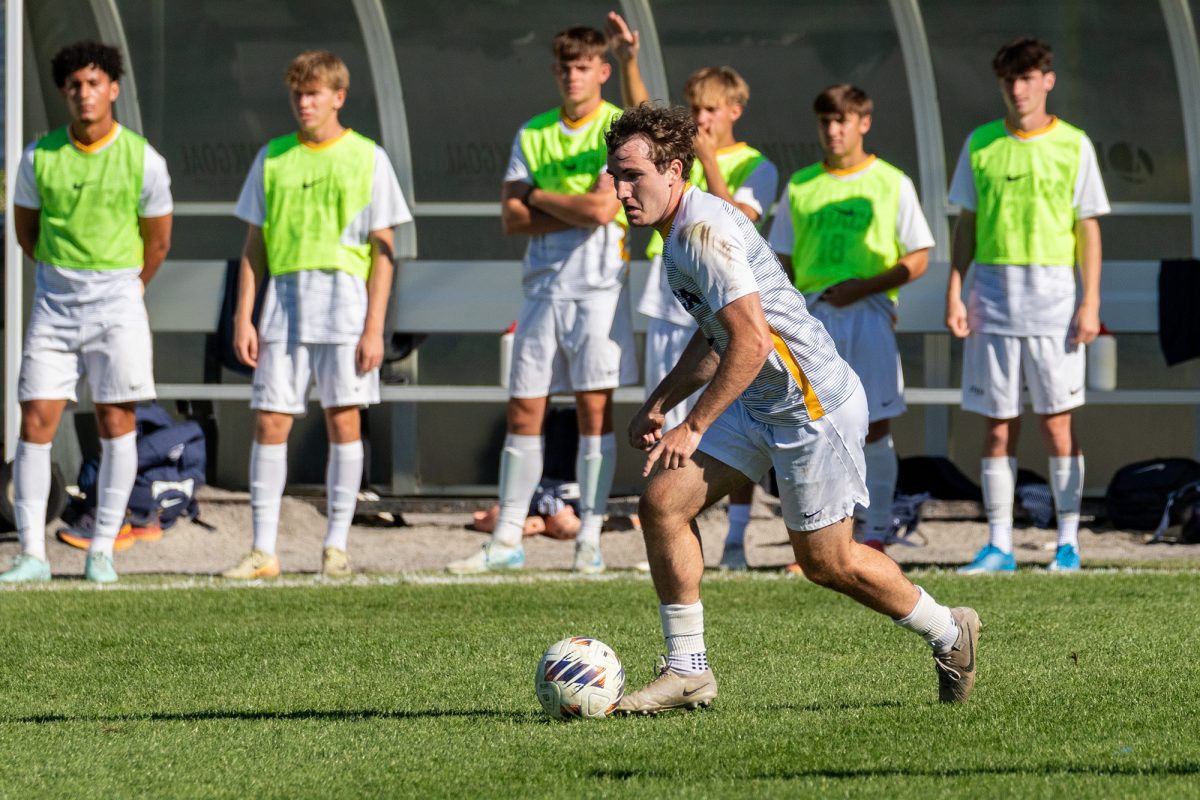A National Science Foundation grant meant to increase the opportunities for minority students in STEM was cut in May for Ithaca College students. Part of the lost funds were set aside to help biology majors present at the 2025 International Worm Meeting over the summer. With financial support from the campus community, students in the Department of Biology were still able to present their award-winning research on an international stage.
The Louis Stokes Alliances for Minority Participation program provided funding to assist colleges in diversifying their science, technology, engineering and math programs. The grant intended to provide IC with approximately $1,999,741 over the course of five years, starting in August 2021. However, the grant’s termination in May 2025 resulted in approximately a $400,000 loss.
Junior biology major Casey Ellison said money from the grant was supposed to fund her trip to the 2025 International Worm Meeting and her summer research expenses as part of the Summer Scholars Program. When Ellison first heard about the grant cut, they said they began to panic, knowing there was no way to make up the money on their own.
“My life just blew up a little bit,” Ellison said. “I was just really disappointed and just accepting the fact that I wasn’t going to be able to go.”
According to Ellison, the total amount they would need to cover to fund the summer research and conference expenses was about $8,000.
The goal of the LSAMP program is to increase the number of students from underrepresented minority populations pursuing high-quality STEM degrees. IC was one of seven small colleges and universities in central New York to receive an LSAMP grant from NSF. On May 2, the grant was one of over 300 terminated in a round of budget cuts at the federal agency.
Despite the funding cut, Ellison and fellow junior biology major Ava Remoll still made it to the conference, where they won the award for best undergraduate poster for research.
Te-Wen Lo, professor in the Department of Biology, reached out to multiple departments on campus to help pull together the necessary funds to ensure Ellison could attend the conference. The Center for Career Exploration and Development, the School of Humanities and Sciences Dean’s office and the Department of Biology all helped to cover the cost of Ellison’s trip. Lo said that, while stressful, the experience highlighted the sense of community at IC.
“You will often hear people say, at Ithaca College, the students are our ‘why,’ and this, I think, is a great example of that,” Lo said. “It really was wonderful to see the different pieces of this campus sort of pull together to support one of our students.”
Lo said that watching her students’ success at the conference amid the funding issues made it all the more meaningful.
“If anyone was wondering what the importance of NSF grants and those types of funding opportunities are, I think this just sums it up,” Lo said.
Ellison and Remoll work with Lo in her genetics lab and traveled with her to Davis, California to present at the 2025 International Worm Meeting. The meeting is a bi-annual conference for scientists of all levels who work with “C. elegans,” a tiny worm that is often used as a model organism for humans because of similarities in their genes. Lo said the conference is organized by leaders in “C. elegan” research and is community-driven.
“It was kind of unbelievable because there [were] hundreds of undergraduates [at the conference],” Lo said. “[Ellison and Remoll] really must have done a spectacular job and really impressed the judges.”
Remoll said the conference represented the first time she has presented her research outside of a school setting.
“We had a lot of people come up and ask really great questions,” Remoll said. “It’s a great way to get feedback or ideas for how to proceed.”
Remoll said the Summer Scholars Program allowed her to focus her time and attention on the experiment without the pressures of school. The program allows students in H&S to participate in either independently designed projects or faculty-led research.
“If you really like what you’re working on, and you wish you had eight weeks to do it full time and get paid, that’s a really cool opportunity,” Remoll said.
Jean Hardwick, professor and chair of the Department of Biology, said that working throughout the summer allows students to make much more progress on their projects.
All IC students majoring in biology are required to complete a semester-long research experience. Whether during the summer or during the school year, Hardwick said research is an important part of the student experience in the Center for Natural Sciences. Students can get involved with research as early as the second semester of their first year. Research is a required part of the biology, chemistry and biochemistry majors.
“We’ve made a commitment that research is a part of every student’s undergraduate curriculum,” Hardwick said. “In a lot of schools, even in my own experiences, the students who get involved in research are a subset. … But here, we don’t believe in that, and we want every student to have the exact same opportunity. You shouldn’t have to fight your way into a lab to have that experience.”
Comparable schools to IC handle undergraduate research in a variety of ways. Colgate University requires curricular research for juniors and seniors only, Vassar College does not have any formal research requirement and Marist University is similar to IC in that it has research opportunities for students starting their first year.
While IC is not a large institution, Lo and Hardwick said they believe that it is to the students’ advantage. Lo said there are no graduate students in biology at IC, meaning undergraduate students can take the lead in the lab.
“Here they get to have a significant intellectual contribution to their projects, because there’s no one else,” Lo said. “So it’s their ideas. They help troubleshoot when things don’t work; they have to figure out how to fix it. When things do work, they have to figure out the next steps.”
Lo said she stresses that the research taking place in the labs in CNS is all novel and new, and students get to participate firsthand in the discovery.
“Everything they do is contributing new information to the scientific community, sometimes small little bits, but they’re still new,” Lo said. “Every little bit counts.”
Remoll and Ellison said they are continuing their research in Lo’s lab in Fall 2025, this time looking at dystrophin in combination with other proteins that may have an effect on social feeding.
“There’s pretty much unlimited science to be done all the time,” Remoll said. “You can work on the same project for decades and decades, and never run out of questions to ask about it.”


